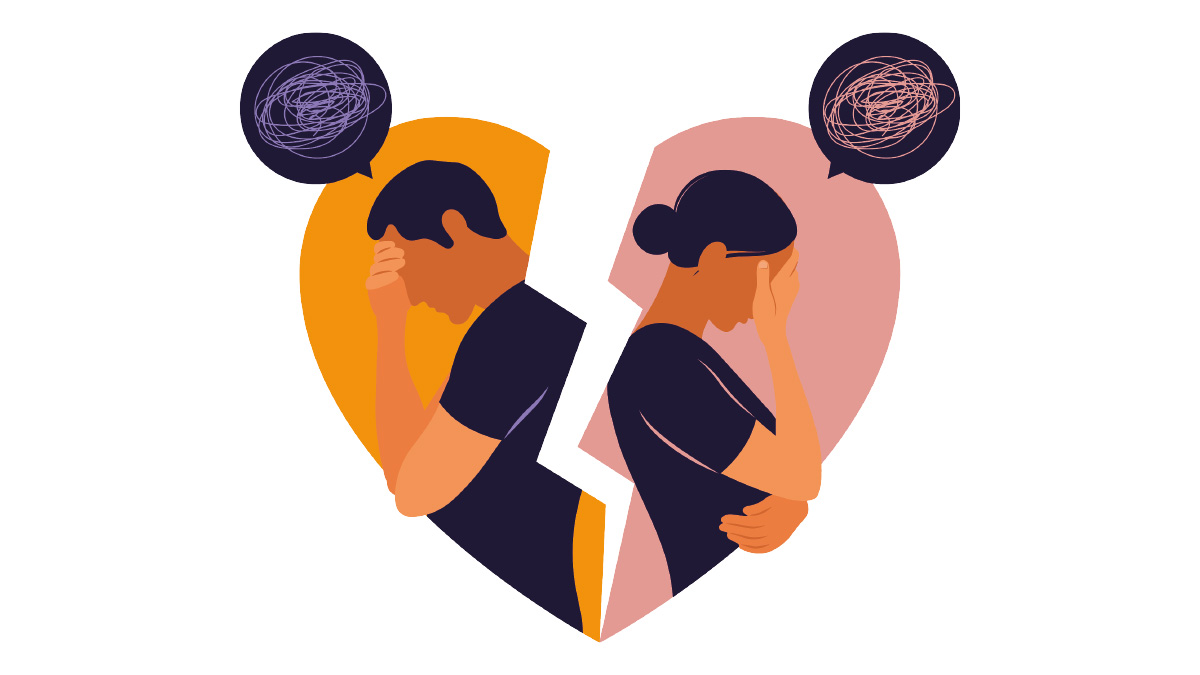Siempre hay que tener el valor de decirle adiós a las malas relaciones, pero sobre todo identificar las señales que nos indican que estamos viviendo en una de ellas
Una de las mejores etapas de la pareja –si no es que la mejor– es la del noviazgo, y es así porque es cuando se muestra lo mejor de sí mismo, donde se exhibe la versión con la que pretendemos conquistar al ser por el que se está interesado (a), y es por esta razón que debemos estar muy atentos a cualquier manifestación o conducta que nos haga ruido, el cual casi siempre proviene de nuestro instinto de supervivencia.
Estas son algunas de las conocidas “Red Flags” o “banderas rojas”, las cuales son microviolencias que pueden aparecer en el noviazgo, unas de ellas tan rojas como la sangre.
1. Faltas de respeto. De cualquier tipo, desde la más insignificante hasta la más alarmante. Estas pueden ser comentarios denigrantes, minimizantes, devaluatorios; aquellas que afecten tus limites, emociones, forma de pensar y que tienen que ver con tu propia esencia.
2. Falta de interés. Cuando se deja de invertir tiempo y hasta emociones, así como cuando ya no se da la misma importancia y valor a la pareja en la relación.
3. Mentiras. Del tamaño y del color que sean crean desconexión, inseguridad e inestabilidad, y cuando estas aparecen en etapas tan tempranas hay que poner atención.
4. Chantaje emocional. Este es un tipo de manipulación muy dañina que puede ser casi imperceptible, pero se aprovecha de las emociones y sentimientos para estar en una posición de control sobre la pareja.
5. Control. El control disfrazado de “amor y protección” es difícil de percibir, abarca desde controlar tu forma de ser, pensar y expresarte, hasta tu vestimenta, gustos, comida, amigos, familia, lugares y horarios. También aquí destacan las prohibiciones.
6. Aislamiento. Consiste cuando poco a poco te alejan de tus redes de apoyo.
7. Celos extremos. Aquellos desmedidos, sin fundamento y absurdos.
8. Inestabilidad emocional. Altibajos y descontroles emocionales, inseguridades, así como comunicación intermitente.
9. Desconfianza constante sin motivo. Acusaciones por situaciones inexistentes.
10. Maltrato físico. Esta pudiera ser la más grave de todas ya que sale de la esfera psicológica a la física y cuando es así no debe haber retorno, hay que huir, sí…huir.
Si bien las relaciones son complicadas y requieren de mucho compromiso, siempre hay que tener el valor de decirle adiós a las malas relaciones, hay que amarnos lo suficiente para que nunca tengamos que fingir felicidad donde no la hay y tener claro que nuestra tarea no es reparar el corazón de nadie sino cuidar del nuestro.
Red Flags
You always must have the courage to say goodbye to bad relationships, but above all, identify the signs that indicate that you are living in one of them.
One of the best stages of a relationship – if not the best – is courtship, and this is because it is when the best of oneself is shown, where the version with which we intend to conquer the person we are interested in is exhibited, and it is for this reason that we must be very attentive to any manifestation or behavior that makes us uncomfortable, which almost always comes from our survival instinct.
These are some of the well-known “Red Flags”, which are micro-violences that can appear in courtship, some of them as red as blood.
1. Disrespect. Of any kind, from the most insignificant to the most alarming. These can be demeaning, minimizing, devaluing comments; those that affect your limits, emotions, way of thinking and that have to do with your own essence.
2. Lack of interest. When you stop investing time and even emotions, as well as when you no longer give the same importance and value to your partner in the relationship.
3. Lies. Whatever their size and color, they create disconnection, insecurity and instability, and when these appear in such early stages, you have to pay attention.
4. Emotional blackmail. This is a very harmful type of manipulation that can be almost imperceptible, but it takes advantage of emotions and feelings to be in a position of control over your partner.
5. Control. Control disguised as “love and protection” is difficult to perceive, it ranges from controlling your way of being, thinking and expressing yourself, to your clothing, tastes, food, friends, family, places and schedules. Prohibitions also stand out here.
6. Isolation. It consists of when you are gradually distanced from your support networks.
7. Extreme jealousy. Those that are excessive, unfounded and absurd.
8. Emotional instability. Ups and downs and emotional imbalances, insecurities, as well as intermittent communication.
9. Constant mistrust without reason. Accusations for non-existent situations.
10. Physical abuse. This could be the most serious of all since it goes from the psychological sphere to the physical and when this is the case there should be no turning back, you have to flee, yes… flee.
Although relationships are complicated and require a lot of commitment, we must always have the courage to say goodbye to bad relationships, we must love ourselves enough so that we never have to pretend to be happy where there is none, and we must be clear that our task is not to repair anyone’s heart but to take care of our own.

